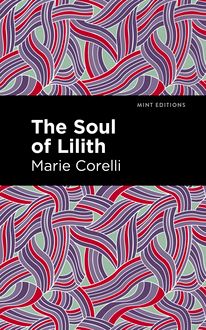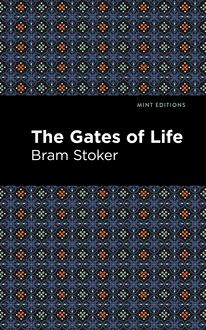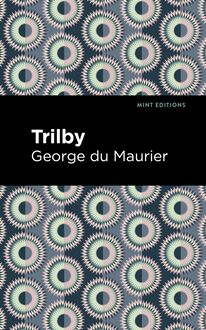-
 Univers
Univers
-
 Ebooks
Ebooks
-
 Livres audio
Livres audio
-
 Presse
Presse
-
 Podcasts
Podcasts
-
 BD
BD
-
 Documents
Documents
-
- Cours
- Révisions
- Ressources pédagogiques
- Sciences de l’éducation
- Manuels scolaires
- Langues
- Travaux de classe
- Annales de BEP
- Etudes supérieures
- Maternelle et primaire
- Fiches de lecture
- Orientation scolaire
- Méthodologie
- Corrigés de devoir
- Annales d’examens et concours
- Annales du bac
- Annales du brevet
- Rapports de stage
La lecture à portée de main
Vous pourrez modifier la taille du texte de cet ouvrage
Découvre YouScribe en t'inscrivant gratuitement
Je m'inscrisDécouvre YouScribe en t'inscrivant gratuitement
Je m'inscrisEn savoir plus
Vous pourrez modifier la taille du texte de cet ouvrage
En savoir plus

Description
Princess Ziska is a beautiful woman who captures the eye of an acclaimed painter who feels eerily connected to her through distant yet unexplained memories. He’s haunted by a shared history, love and betrayal that’s centuries old.
Armand Gervase is a celebrated artist who’s living in the lap of luxury. His most popular work shows an Egyptian woman, who in a fit of rage, is about to kill her lover. When Armand meets the dynamic Princess Ziska, he is taken aback by her beauty and hypnotic charm. Their encounter triggers a series of strange memories indicating that they have met before. He soon discovers a striking resemblance between Princess Ziska and the subject of his famous painting. Is she a creation from his mind or a relic of his past?
Ziska: The Problem of a Wicked Soul is a thrilling combination of romance, mystery and horror. It’s a story of calculated revenge a lifetime in the making. Corelli’s signature prose delivers an unforgettable tale of reincarnation and ultimate retribution.
With an eye-catching new cover, and professionally typeset manuscript, this edition of Ziska: The Problem of a Wicked Soul is both modern and readable.
Sujets
Informations
| Publié par | Mint Editions |
| Date de parution | 09 mars 2021 |
| Nombre de lectures | 2 |
| EAN13 | 9781513278681 |
| Langue | English |
| Poids de l'ouvrage | 3 Mo |
Informations légales : prix de location à la page 0,0450€. Cette information est donnée uniquement à titre indicatif conformément à la législation en vigueur.
Extrait
Ziska
Marie Corelli
Ziska was first published in 1897.
This edition published by Mint Editions 2021.
ISBN 9781513278223 | E-ISBN 9781513278681
Published by Mint Editions®
minteditionbooks.com
Publishing Director: Jennifer Newens
Design & Production: Rachel Lopez Metzger
Project Manager: Micaela Clark
Typesetting: Westchester Publishing Services
C ONTENTS P ROLOGUE I II III IV V VI VII VIII IX X XI XII XIII XIV XV XVI T HE D EVIL’S M OTOR: A F ANTASY
P ROLOGUE
D ark against the sky towered the Great Pyramid, and over its apex hung the moon. Like a wreck cast ashore by some titanic storm, the Sphinx, reposing amid the undulating waves of grayish sand surrounding it, seemed for once to drowse. Its solemn visage that had impassively watched ages come and go, empires rise and fall, and generations of men live and die, appeared for the moment to have lost its usual expression of speculative wisdom and intense disdain—its cold eyes seemed to droop, its stern mouth almost smiled. The air was calm and sultry; and not a human foot disturbed the silence. But towards midnight a Voice suddenly arose as it were like a wind in the desert, crying aloud: “Araxes! Araxes!” and wailing past, sank with a profound echo into the deep recesses of the vast Egyptian tomb. Moonlight and the Hour wove their own mystery; the mystery of a Shadow and a Shape that flitted out like a thin vapor from the very portals of Death’s ancient temple, and drifting forward a few paces resolved itself into the visionary fairness of a Woman’s form—a Woman whose dark hair fell about her heavily, like the black remnants of a long-buried corpse’s wrappings; a Woman whose eyes flashed with an unholy fire as she lifted her face to the white moon and waved her ghostly arms upon the air. And again the wild Voice pulsated through the stillness.
“Araxes! … Araxes! Thou art here,
—and I pursue thee! Through life into
death; through death out into life again!
I find thee and I follow! I follow!
Araxes! …”
Moonlight and the Hour wove their own mystery; and ere the pale opal dawn flushed the sky with hues of rose and amber the Shadow had vanished; the Voice was heard no more. Slowly the sun lifted the edge of its golden shield above the horizon, and the great Sphinx awaking from its apparent brief slumber, stared in expressive and eternal scorn across the tracts of sand and tufted palm-trees towards the glittering dome of El-Hazar—that abode of profound sanctity and learning, where men still knelt and worshipped, praying the Unknown to deliver them from the Unseen. And one would almost have deemed that the sculptured Monster with the enigmatical Woman-face and Lion-form had strange thoughts in its huge granite brain; for when the full day sprang in glory over the desert and illumined its large features with a burning saffron radiance, its cruel lips still smiled as though yearning to speak and propound the terrible riddle of old time; the Problem which killed!
I
I t was the full “season” in Cairo. The ubiquitous Britisher and the no less ubiquitous American had planted their differing “society” standards on the sandy soil watered by the Nile, and were busily engaged in the work of reducing the city, formerly called Al Kahira or The Victorious, to a more deplorable condition of subjection and slavery than any old-world conqueror could ever have done. For the heavy yoke of modern fashion has been flung on the neck of Al Kahira, and the irresistible, tyrannic dominion of “swagger” vulgarity has laid The Victorious low. The swarthy children of the desert might, and possibly would, be ready and willing to go forth and fight men with men’s weapons for the freedom to live and die unmolested in their own native land; but against the blandly-smiling, white-helmeted, sun-spectacled, perspiring horde of Cook’s “cheap trippers,” what can they do save remain inert and well-nigh speechless? For nothing like the cheap tripper was ever seen in the world till our present enlightened and glorious day of progress; he is a new-grafted type of nomad, like and yet unlike a man. The Darwin theory asserts itself proudly and prominently in bristles of truth all over him—in his restlessness, his ape-like agility and curiosity, his shameless inquisitiveness, his careful cleansing of himself from foreign fleas, his general attention to minutiae, and his always voracious appetite; and where the ape ends and the man begins is somewhat difficult to discover. The “image of God” wherewith he, together with his fellows, was originally supposed to be impressed in the first fresh days of Creation, seems fairly blotted out, for there is no touch of the Divine in his mortal composition. Nor does the second created phase-the copy of the Divineo—namely, the Heroic,—dignify his form or ennoble his countenance. There is nothing of the heroic in the wandering biped who swings through the streets of Cairo in white flannels, laughing at the staid composure of the Arabs, flicking thumb and finger at the patient noses of the small hireable donkeys and other beasts of burden, thrusting a warm red face of inquiry into the shadowy recesses of odoriferous bazaars, and sauntering at evening in the Esbekiyeh Gardens, cigar in mouth and hands in pockets, looking on the scene and behaving in it as if the whole place were but a reflex of Earl’s Court Exhibition. History affects the cheap tripper not at all; he regards the Pyramids as “good building” merely, and the inscrutable Sphinx itself as a fine target for empty soda-water bottles, while perhaps his chiefest regret is that the granite whereof the ancient monster is hewn is too hard for him to inscribe his distinguished name thereon. It is true that there is a punishment inflicted on any person or persons attempting such wanton work—a fine or the bastinado; yet neither fine nor bastinado would affect the “tripper” if he could only succeed in carving “’Arry” on the Sphinx’s jaw. But he cannot, and herein is his own misery. Otherwise he comports himself in Egypt as he does at Margate, with no more thought, reflection, or reverence than dignify the composition of his far-off Simian ancestor.
Taking him all in all, he is, however, no worse, and in some respects better, than the “swagger” folk who “do” Egypt, or rather, consent in a languid way to be “done” by Egypt. These are the people who annually leave England on the plea of being unable to stand the cheery, frosty, and in every respect healthy winter of their native country—that winter, which with its wild winds, its sparkling frost and snow, its holly trees bright with scarlet berries, its merry hunters galloping over field and moor during daylight hours, and its great log fires roaring up the chimneys at evening, was sufficiently good for their forefathers to thrive upon and live through contentedly up to a hale and hearty old age in the times when the fever of travelling from place to place was an unknown disease, and home was indeed “sweet home.” Infected by strange maladies of the blood and nerves, to which even scientific physicians find it hard to give suitable names, they shudder at the first whiff of cold, and filling huge trunks with a thousand foolish things which have, through luxurious habit, become necessities to their pallid existences, they hastily depart to the Land of the Sun, carrying with them their nameless languors, discontents and incurable illnesses, for which Heaven itself, much less Egypt, could provide no remedy. It is not at all to be wondered at that these physically and morally sick tribes of human kind have ceased to give any serious attention as to what may possibly become of them after death, or whether there I S any “after,” for they are in the mentally comatose condition which precedes entire wreckage of brain-force; existence itself has become a “bore;” one place is like another, and they repeat the same monotonous round of living in every spot where they congregate, whether it be east, west, north, or south. On the Riviera they find little to do except meet at Rumpelmayer’s at Cannes, the London House at Nice, or the Casino at Monte-Carlo; and in Cairo they inaugurate a miniature London “season” over again, worked in the same groove of dinners, dances, drives, picnics, flirtations, and matrimonial engagements. But the Cairene season has perhaps some advantage over the London one so far as this particular set of “swagger” folk are concerned—it is less hampered by the proprieties. One can be more “free,” you know! You may take a little walk into “Old” Cairo, and turning a corner you may catch glimpses of what Mark Twain calls “Oriental simplicity,” namely, picturesquely-composed groups of “dear delightful” Arabs whose clothing is no more than primitive custom makes strictly necessary. These kind of “tableaux vivants” or “art studies” give quite a thrill of novelty to Cairene-English Society,—a touch of savagery,—a soupcon of peculiarity which is entirely lacking to fashionable London. Then, it must be remembered that the “children of the desert” have been led by gentle degrees to understand that for harboring the strange locusts imported into their land by Cook, and the still stranger specimens of unclassified insect called Upper Ten, which imports itself, they will receive “backsheesh.”
“Backsheesh” is a certain source of comfort to all nations, and translates itself with sweetest euphony into all languages, and the desert-born tribes have justice on their side when they demand as much of it as they can get, rightfully or wrongfully. They deserve to gain some sort of advantage out of the odd-looking swarms of Western invaders who amaze them by their dress and affront them by their manners. “Backsheesh,” therefore, has become the perpetual cry of the Desert-Born,—it is the only means of offence and defence left to them, and very naturally they cling to it with fervor and resolution. And who shall blame them? The tall, majestic, med
-
 Univers
Univers
-
 Ebooks
Ebooks
-
 Livres audio
Livres audio
-
 Presse
Presse
-
 Podcasts
Podcasts
-
 BD
BD
-
 Documents
Documents
-
Jeunesse
-
Littérature
-
Ressources professionnelles
-
Santé et bien-être
-
Savoirs
-
Education
-
Loisirs et hobbies
-
Art, musique et cinéma
-
Actualité et débat de société
-
Jeunesse
-
Littérature
-
Ressources professionnelles
-
Santé et bien-être
-
Savoirs
-
Education
-
Loisirs et hobbies
-
Art, musique et cinéma
-
Actualité et débat de société
-
Actualités
-
Lifestyle
-
Presse jeunesse
-
Presse professionnelle
-
Pratique
-
Presse sportive
-
Presse internationale
-
Culture & Médias
-
Action et Aventures
-
Science-fiction et Fantasy
-
Société
-
Jeunesse
-
Littérature
-
Ressources professionnelles
-
Santé et bien-être
-
Savoirs
-
Education
-
Loisirs et hobbies
-
Art, musique et cinéma
-
Actualité et débat de société
- Cours
- Révisions
- Ressources pédagogiques
- Sciences de l’éducation
- Manuels scolaires
- Langues
- Travaux de classe
- Annales de BEP
- Etudes supérieures
- Maternelle et primaire
- Fiches de lecture
- Orientation scolaire
- Méthodologie
- Corrigés de devoir
- Annales d’examens et concours
- Annales du bac
- Annales du brevet
- Rapports de stage




















